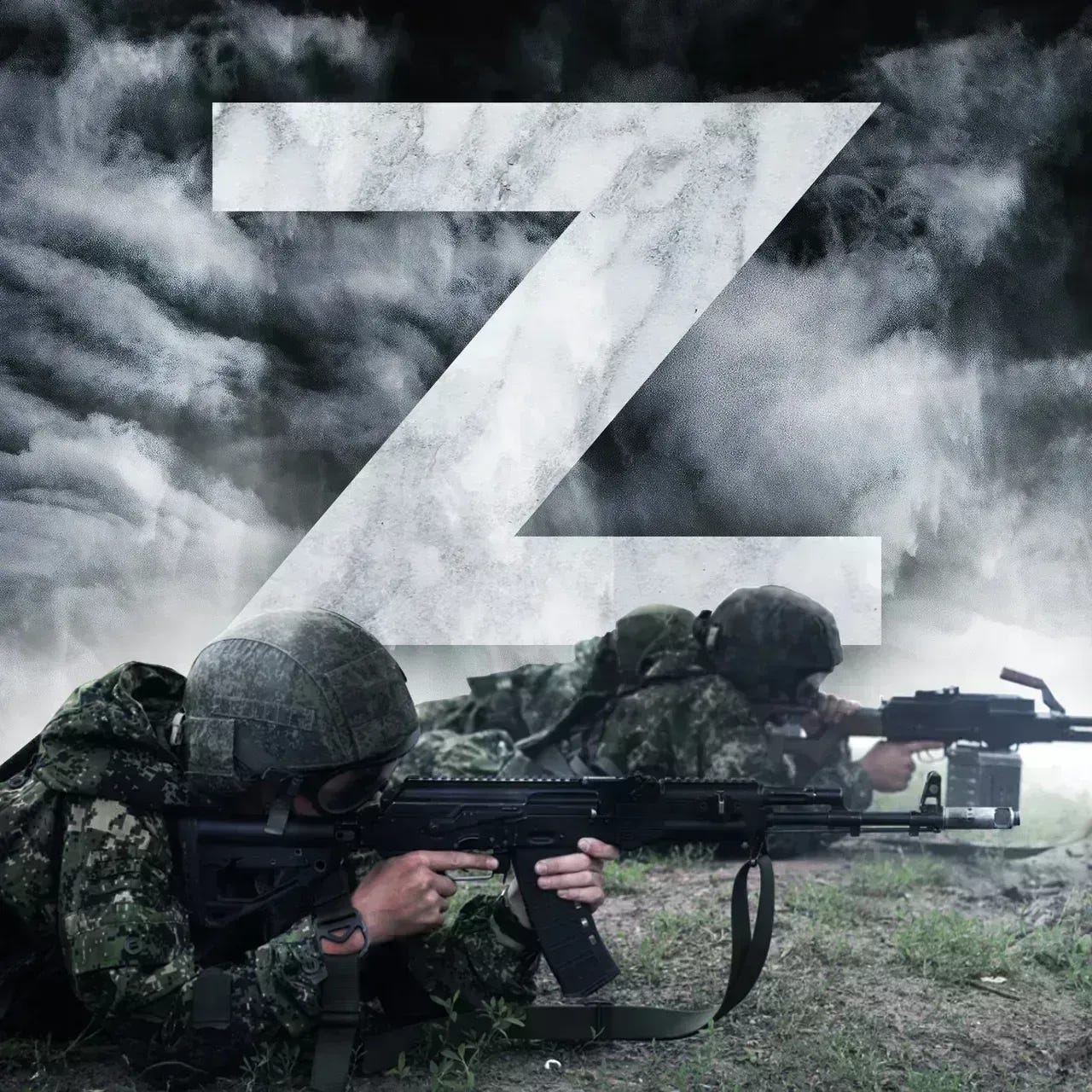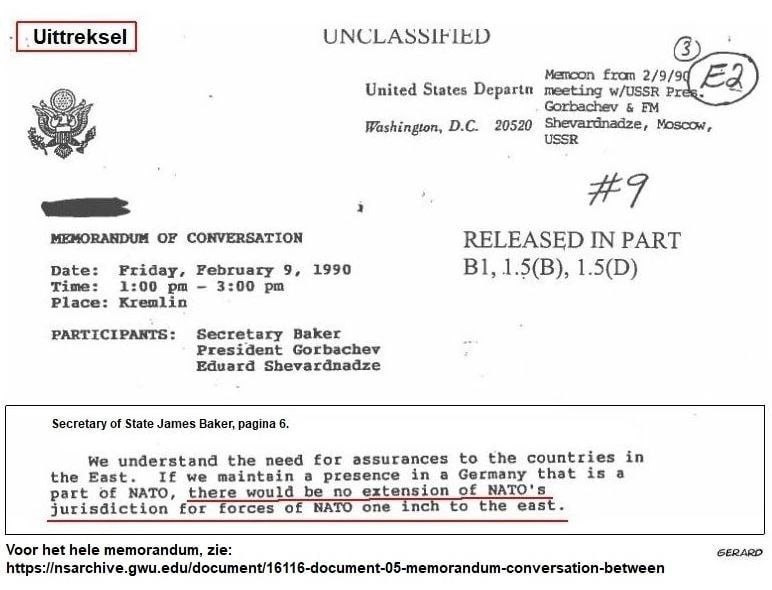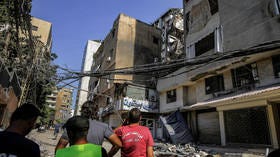RUNNING UPDATES ON THE CONFLICT IN UKRAINE - 01.08.2024
Including geopolitical issues affecting the balance of power in the ongoing end game war to establish our common future, a closely monitored prison planet or tolerance for diverse modes of governance.
THE ROAD TO THE ULTIMATE CONCLUSION OF WORLD WAR III RUNS THROUGH HERE.
Please note: During most of the month ahead we will be in transit.
Updates may be sporadic and perhaps absent during this time.
Our apologies for this alteration to your daily updates.
*** UKRAINIANS FORCED TO FIGHT WHEN WAR KNOWN TO BE LOST ***
“Ukraine. What is the truth...?
Why won’t western media tell both sides…?”
VIRTUALLY UNREPORTED ATROCITY IN LUGANSK, 2nd JUNE 2014
A lot has been said about atrocities in the western media claimed to have been perpetrated by the Russians, for example at Bucha and Mariupol among others. These assertions are conveyed on the say so of the Ukrainian authorities. How willing though are western news broadcasters to convey atrocities attributed to the Ukrainians? The following will I think provide the answer.
If anyone wonders if they are receiving accurate coverage of the conflict in Ukraine I would suggest watching the video below of an event which occurred on the 2nd of June 2014 and ask themselves if they recall hearing about it on any mainstream media news channel at the time.
The video is harrowing to watch. The bodies (five women and three men) are real. Yet across western media there was only one single news report that occurred a day later. This was from CNN and occurred only because a CNN team happened to be nearby at the time of the atrocity and so the network could hardly ignore it as all others so obviously did.
The video below shows the unvarnished truth that was not considered newsworthy in western mainstream news.
THE SINGLE WESTERN MSM REPORT ON THE LUGANSK ATROCITY, 3rd JUNE 2014
The video at the CNN link below is the crime scene sanitised by CNN, though played straight with honest reporting on the scene not playing things to Kiev’s tune.
(There was a time early in the war in the Donbass when CNN were not afraid to contradict the Ukrainian regime in Kiev.) Watch, because it's the first and last time you will see this.
5 women and 3 men died, all civilians.
Air attack on pro-Russian separatists in Luhansk kills 8, stuns residents.
COLLECTIVE WEST-UKRAINE <-> RUSSIA
SHAMELESS WESTERN MEDIA IGNORED THIS:
Airstrike in Lugansk - 10 Year Anniversary.
The Heat: Big Prisoner Exchange, The Major Battle For Kostiantynivka. Military Summary 2024.08.01.
ALEXANDER MERCOURIS of THE DURAN: Iran Threatens Israel; War Looms; Finland Kiev Should Talk; Rus Unfazed F16s; Ukr 60K July Losses.
ALEX CHRISTOFOROU of THE DURAN: Russia-US prisoner swap. F16s in Ukraine. Hungary hints EU behind oil block. Fight club, Musk-Maduro.
F-16s no ‘magic pill’ for Kiev – Kremlin.
Western-supplied fighter jets won’t have a significant impact on the battlefield and will be destroyed, Russian presidential spokesman Dmitry Peskov has said.
The Spasskaya Tower, right, and the Tsarskaya Tower of the Moscow Kremlin.
The recent reported delivery of Western F-16 fighter jets to Ukraine will not have a significant impact on the battlefield and Kiev must be aware of this, Kremlin spokesman Dmitry Peskov told journalists on Thursday.
His statement comes after Bloomberg reported on Wednesday that the first batch of US-made jets had arrived in Ukraine. It is not yet clear which country supplied the aircraft, but the outlet noted that the number of warplanes was “small.”
Commenting on the report, Peskov stressed that there is no “magic pill” for Kiev and that it will not have this “panacea” for long.
“These planes will appear, their number will gradually decrease, they will be shot down and destroyed,” the Russian presidential spokesman said. The jets “will not be able to significantly influence the dynamics of events at the front,” Peskov added.
Read more: US announces supply of F-16 missiles to Ukraine – WSJ
Kiev has yet to confirm or deny the delivery of the jets. The spokeswoman for the Ukrainian Defense Ministry, Diana Davityan, has declined to comment on the issue altogether.
Previously, a number of NATO states, including the US, France, Bulgaria, Denmark, the Netherlands, Belgium, Canada, Luxembourg, Norway, Poland, Portugal, Romania, and Sweden, formed a so-called ‘F-16 coalition’, pledging to provide Kiev with the American-made fighter jets as well as to train Ukrainian pilots to operate the aircraft.
Moscow, however, has repeatedly warned that the jets, like all other Western weapons provided to Kiev, would fail to change the inevitable outcome of the conflict, and that the Russian military would destroy these planes like all other Ukrainian military hardware.
F-16s no ‘magic pill’ for Kiev – Kremlin.
ALEX CHRISTOFOROU & ALEXANDER MERCOURIS of THE DURAN: US/EU privately admit they lost Ukraine proxy war w/ Levan Gudadze.
THROUGH THE EYES OF ANIA: UKRAINE LOST MORE THAN 60,000 TROOPS IN JULY (2000/PER DAY). WHO WILL REPLACE ZELENSKY?
COLONEL JACQUES BAUD: Putin Ramping Up All His Forces: What is Russia's Nuclear Doctrine?
Dr. GILBERT DOCTOROW: Russia Unleashes Relentless Troop Waves, Overwhelms Ukrainian Forces.
LEVAN GUDADZE: F-16s arrive in Ukraine. Germany-US-Russia-Belarus Prisoner Swap. Middle East Escalation...
ANDREI MARTYANOV: Andrei Martyanov: Ukraine on the Verge of Collapse and NATO’s Greatest Defeat.
DDGEOPOLITICS: The Aussie Cossack Show: How Foreign Governments Persecute Opponents & Stoke Russophobia.
Russia's Airforce Drops FAB-3000 Bomb on Enemy Positions.
Russia’s Latest Strike: Tor-M2 Downed UK-Supplied Storm Shadow in Ukraine!
NATO warehouse is burning in Bulgaria.
ISRAEL-WEST <-> PALESTINE-IRAN-SYRIA-IRAQ-LEBANON-YEMEN-VENEZUELA-DPRK
Russia accuses Israel of ‘gross violation’ of international law.
An Israeli strike on Beirut that damaged a hospital is “unacceptable,” the Russian Foreign Ministry has said.
A building damaged in the Israeli strike is seen in Beirut, Lebanon, on July 31, 2024.
The bombing of Beirut by Israel this week breaches the very basic rules of international law and risks sparking a major conflict in the Middle East, the Russian Foreign Ministry said on Wednesday. Earlier, West Jerusalem confirmed a targeted attack on a Hezbollah commander in the Lebanese capital.
The strike hit a residential area near one of Beirut’s biggest hospitals, the ministry’s deputy spokesman, Andrey Nastasyin, told journalists during a briefing in Moscow. Several people, including a woman and two children were killed in the strike, which left the hospital “badly damaged” and more than 80 people injured, he said.
“We consider it unacceptable to carry out such military operations, particularly in the densely populated areas, that risk massive civilian casualties and destruction of civilian infrastructure,” the diplomat said.
Israeli actions are nothing but a “gross violation of Lebanon’s sovereignty and basic norms of international law,” the deputy spokesman stated. He also warned that the incident could further stir up tensions in the region and urged all the sides to exercise maximum restraint in the wake of the attack.
Read more: Israel bombs Lebanese capital
According to the diplomat, no Russian citizens were injured in the attack. He also called on the Russian nationals to avoid traveling to Lebanon in the wake of the developments.
The Israel Defense Forces (IDF) confirmed the strike on Tuesday and said that it targeted the Hezbollah commander responsible for a missile attack on a village in the Golan Heights that occurred last Saturday.
Twelve people died in the Druze village of Majdal Shams, mostly children, when a rocket hit a football pitch. West Jerusalem blamed the incident on Hezbollah, adding that the group had “crossed the red line” with this strike. The Lebanon-based Shia militant group denied responsibility but warned that it would respond to any Israeli strike.
Israel and Hezbollah have been exchanging rocket and drone strikes for months amid West Jerusalem’s ongoing military campaign in Gaza, which led to a spike in tensions between Israel and the Lebanon-based group as well. The cross-border attacks had led to the evacuation of almost 200,000 residents on both sides of the border.
West Jerusalem has repeatedly threatened a military operation against Hezbollah. In June, President Isaac Herzog said that the group’s “terrorist aggression must be stopped.”
Russia accuses Israel of ‘gross violation’ of international law.
GEORGE GALLOWAY: INTERVIEW: “We’ve lost hope in the international community’: Arab Barghouthi.
BREAKTHROUGH NEWS: Israel’s Descent Into Madness: ‘To Hell with A Ceasefire, Let’s Provoke Regional War’.
Elon Musk and Media Puppets: How They Tried to Topple Venezuela.
GEORGE GALLOWAY: ‘What’s it got to do with you Elon?’
KIM IVERSEN - ANYA PARAMPIL: Anya Parampil Breaks Down Why Americans Should Care About Venezuela.
BEN NORTON: USA backs another coup attempt in Venezuela - with Elon Musk's help.
KATIE HALPER: Corporate Media REGURGITATES Zionist LIES With Briahna Joy Gray.
REDACTED: So it begins, U.S. starts Civil War in Venezuela over election results it doesn't like.
COLLECTIVE WEST <-> GLOBAL MAJORITY
BRIAN BERLETIC of THE NEW ATLAS: Washington's Next Step in the Use & Abuse of the Philippines.
SEAN FOO: As Tokyo Launches Last-Ditch Currency Rescue, China Devours Japan’s EV Market In Thailand.
BORZZIKMAN: The World Is On The Brink of WWIII: RUSSIA won't let ISRAEL and the U.S. to Destroy IRAN.
USA
GEORGE GALLOWAY - PROFESSOR RICHARD WOLFF: The US empire is over.
Illusion of American Democracy.
MULTIPOLARITY - RUSSIA-CHINA / BRICS
The secret of the BRICS’ success is not what it is, but what it’s not.
The group is the antidote to a declining hegemon pursuing its own interests without regard for problems that require system-level solutions.
BRICS is on the move. It already expanded at the beginning of this year, while no fewer than 40 countries have expressed interest in joining. Russian Federation Council Chairwoman Valentina Matvienko recently claimed that 24 countries are in line to actually become members.
But successful blocs comprising such a diverse assortment of nations are exceedingly rare. What could possibly compel countries so culturally, geographically, and politically disparate to band together?
Here we can offer the standard line about how BRICS does not seek to corral members into line around a narrow set of interests. Nor does it impose ideological purity tests, or insist upon a certain political makeup. It respects sovereignty. It offers a vehicle for nations left on the margins of Western-controlled institutions to have a stronger voice. This is all true but it has been said many times.
Let’s instead go for a more provocative question: what is so attractive about a group that has very few actual accomplishments to its name? It is in fact this relative lack of achievement that many naysayers have latched on to in dismissing the whole enterprise.
To find a good example of this point of view, look no further than the man who coined the acronym in the first place, former Goldman Sachs analyst Jim O’Neill. Ahead of the group’s summit in South Africa last year, O’Neill told the Financial Times that BRICS had “never achieved anything since they first started meeting” and that beyond “powerful symbolism” he wasn’t sure what its members were even hoping to achieve.
And indeed, one will notice that the group’s muscle is often expressed merely in the raw economic or human potential of its members – such-and-such a percentage of global GDP, or population, or oil production, or the number of members (current members are Brazil, Russia, India, China, South Africa, the United Arab Emirates, Egypt, Iran, and Ethiopia). More seldom heard is what the group has actually done.
Of the concrete achievements of the bloc, perhaps the most notable is the founding of a development bank that aims to rival the World Bank. The New Development Bank (NDB) was begun in 2015 with its headquarters in Shanghai, and was seeded with $50 billion to fund infrastructure and sustainability projects. Around the same time, a BRICS monetary fund called the Contingent Reserve Arrangement (CRA) – an alternative to the IMF – was created. These are institutions born out of years of frustration at the failure to reform their US-dominated counterparts.
However, they have not entirely lived up to their hype. Brazilian economist Paulo Nogueira Batista, who represented his country at the IMF from 2007 to 2015 and then was vice-president of the NDB from 2015 to 2017, prepared a paper for the Valdai Club meeting in Sochi, Russia in 2023 in which he painted a sober picture of the impact these institutions have had.
“When we started out with the CRA and the NDB, there was considerable concern with what the BRICS were doing in this area in Washington, DC., in the IMF and World Bank. I can testify to that because I lived there at the time, as executive director for Brazil and other countries in the board of the IMF. As time went by, however, people in Washington relaxed, sensing perhaps that we were going nowhere with the CRA and the NDB.”
The NDB has approved only $33 billion worth of projects in its entire history; the World Bank committed $128 billion in 2023 alone. Of the projects approved by the BRICS lender, roughly two-thirds have been in dollars, according to an investor presentation cited by Reuters. Perhaps surprisingly to some who expect BRICS to offer an immediate and brazen challenge to the West, the NDB has even respected Western sanctions on Russia, putting new transactions with Moscow on hold. It is no wonder that in the halls of US-led institutions concern about this upstart rival has subsided.
The other realm in which BRICS has been expected to deliver something tangible is in launching its own currency. But here, unfortunately, a lot of loose talk has set up the group for disappointment. A wave of hype early last year, even in Western establishment outlets, touting a soon-to-be-created BRICS currency as having the potential to “shake the dollar’s dominance,” has given way to skepticism.
READ MORE: Death of empires: History tells us what will follow the collapse of US hegemony
It is loose talk because a currency per se is not what is on the agenda. The BRICS nations have no intention of surrendering their national currencies – and therefore much of their sovereignty – in a Eurozone-like experiment. Consumers won’t be taking a wad of brics to the grocery store.
And it is not entirely clear how such an arrangement would even work, particularly given that nearly all BRICS countries run current account surpluses. This is a complicated topic best left for another day, but suffice it to say that a certain amount of restructuring of the BRICS economies would be needed for such a plan to be viable. In any case, India has flat-out rejected the idea of a BRICS currency.
What is much more likely to happen is a means of settlement will be developed among central banks for imbalances between surplus and deficit countries. It will be something of a neutral reserve asset, perhaps akin to the bancor system proposed by John Maynard Keynes at Bretton Woods but dismissed by the Americans. Meanwhile, it certainly bears mentioning that a BRICS alternative to the Western SWIFT financial messaging system seems imminent.
Such developments would, of course, be hugely significant, and would count as a genuine achievement, but this will not happen overnight. At least insofar as a new currency is concerned, this is certainly an area where excessive hype and dramatic proclamations have obscured what is a nuanced and highly technical matter.
Finally, although a handful of BRICS countries have free-trade agreements with each other, there is currently no such agreement covering the entire nine-nation group. Although intra-group trade has been growing at a brisk pace – and more and more of this is settled in local currencies – an initiative floated by China to reach a free-trade deal within the bloc was not supported by the other members. The brief history of BRICS has shown without a doubt that the differences among members are real. Their interests do not always align.
So what we have summarized is a certain gap between what is being trumpeted in some quarters and what has transpired. The purpose of pointing this out is not to denigrate the BRICS project or to side with the naysayers. The aim, rather, is to show that that the exuberant interest in BRICS cannot be attributed to its merits alone.
It is said that animals can sense a tsunami coming and sometimes flee for higher ground. Upon seeing all manner of mammals, reptiles, birds, and insects moving in the same direction, it is of far greater interest to ascertain what is driving them en masse than to fixate on the makeup of the scurrying pack. In the case of BRICS, the analogy holds: it’s more a matter of what they are running ‘from’ than running ‘to’.
What has triggered this flight to safer ground is the unseemly and prying arm of an ever more belligerent Washington. The US has weaponized the financial system it presides over, ever more frequently resorted to unilateral sanctions, expanded the scope for secondary sanctions, and also employs economic blockades, and various forms of coercion – up to and including the sabotage of major energy infrastructure – in order to keep as much of the globe as possible under its thumb.
A US Treasury Department report found a 933% increase in the use of sanctions in the decades since the September 11 attacks – and those figures are through 2021, meaning that the avalanche of restrictions unleashed in the last two years aren’t even captured in the data. In 2023 alone, the US added 2,500 persons, comprising 1,621 entities and 879 individuals, to its Specially Designated Nationals and Blocked Persons (SDN) list. The Treasury’s Office of Foreign Assets Control’s list of individuals and entities under sanctions reportedly runs to over 2,000 pages featuring some 12,000 names.
In recent years, America’s global policing has plunged its tentacles into hitherto unthinkable realms. There was a time when sanctions were reserved for countries whose transgressions against the ‘rules-based order’ were of a certain magnitude. This does not justify their use, but most players at least knew where they stood. If before the US responded to real or perceived threats by using what historian Immanuel Wallerstein called a “velvet glove concealing a mailed fist,” the velvet glove has now been cast aside and the mailed fist is roaming the world in paroxysms of anxious rage. Examples are many.
READ MORE: Schizophrenic world order: The West is willing to destroy its financial system to punish Russia
In its desperate effort to suffocate Russia’s defense industry, late last year the Treasury was authorized to sanction any financial institution seen as helping Moscow’s military industrial base. NATO ally Türkiye has been warned that its banks could be targeted for facilitating trade in dual-use goods with Russia. The UAE got a similar lecture. China is, of course, in the crosshairs. Prior to taking matters into its own hands, the US slapped sanctions on the undesirable Nord Stream pipeline, over the feeble objections of staunch ally Germany.
Some of the recent measures can be seen as nothing less than outrageous meddling in the affairs of others. Uganda’s ‘sodomy law’ passed last year compelled the US to reevaluate “all aspects” of its engagement with the country. Officials have indicated that they will even review Uganda’s eligibility for duty-free access to the US for hundreds of goods, a move that would further impair the African country’s already fledgling economy.
Georgia’s law mandating that NGOs funded from abroad register as such and submit to tighter regulations was passed by a legitimate legislature in accordance with democratic procedure. Yet it elicited a virulent reaction from the US and its subservient European allies (and, yes, sanctions are in the works). The EU has even gone so far as to suspend Georgia’s accession process – a position that the US clearly endorses.
Such is life under the frenzied tyranny of the Office of Foreign Assets Control, a once-obscure Treasury department that now bestrides the globe like a colossus. South China Morning Post columnist Alex Lo remarked that the weaponized dollar hangs over many developing countries “like the sword of Damocles” and that BRICS offers an “escape route.” Lo sees this as the main attraction of the group.
Indeed this is the case, but what is transpiring should be seen in a far greater context than just a weaponized currency. Italian economist and historian Giovanni Arrighi, whose work I discussed at length in a previous article, wrote that “declining hegemonic states are faced with the Sisyphean task of containing forces that keep rolling forth with ever renewed strength. Sooner or later, even a small disturbance can tilt the balance in favor of the forces that wittingly or unwittingly are undermining the already precarious stability of existing structures.”
READ MORE: Drowning in debt: The paralysis at the heart of the US fiscal crisis
It was inevitable that the shift in economic power away from the West and toward the rising powers of the Global South would lead to those countries having greater influence in global affairs. And perhaps it was inevitable that the US would embark on the Sisyphean task of containing their rise.
The fear of even a small disturbance goes some way toward explaining what appears as a brittleness and intransigence at the heart of the US’ posture toward the world. The line must be held everywhere, all at once. Underlying this stance is a deep anxiety, a foreboding that if one brick (BRIC?) is out of place, the whole edifice could come crashing down. This, Arrighi tells us, is a typical symptom of the twilight of hegemony.
BRICS thus represents the rest of the world’s response to what Arrighi calls the “final boom” during which a declining power pursues its national interest without regard for the problems that require system-level solutions. It is a state of affairs whereby the US, paradoxically, seeks dominion over the world while making no effort to exercise the type of stewardship of the system that its position would imply. Proper stewardship would entail seeking ways to accommodate as smoothly as possible the changes that are happening anyway. It cannot be the 1950s or even the 1990s forever.
And yet the US exerts an influence both oppressive and absent. It is touchy on all matters related to its hegemony but entirely unresponsive to the actual important issues of the day. This is the under-the-surface magnet pushing disparate nations together under the BRICS banner. It is, as Lo says, “an escape route.” The group represents a new, if still relatively unproven, platform for seeking the exact type of system-level solutions to system-level problems that are not being sought elsewhere. This is a powerful driving force.
It should also be mentioned that the fragmented world that is dawning does not lend itself to the type of rigid and formal institution that thrived in the postwar years. That era has passed. BRICS has wisely refrained from institutionalizing ties through an inflexible policy agenda and a permanent bureaucracy. It seems comfortable with its heterogeneity and loose affiliations.
And this leads to a final thought that is entirely subjective: whatever its limitations and however few its achievements so far, one senses in the rise of BRICS the contours of a great and sweeping change. It is an endeavor with a momentum of its own whose significance will not be measured by tallies on a spreadsheet.
The secret of the BRICS’ success is not what it is, but what it’s not.
ALEX CHRISTOFOROU & ALEXANDER MERCOURIS of THE DURAN: China prepares for Collective West sanctions attack.
How China is better than the USA.
EUROPE / UK
SEBASTIAN SAS: German Economy in Crisis. Olaf Scholz Is On Holiday.
AFRICA
RICHARD MEDHURST: Anti-Colonial Alliance of African States Formed by Niger, Mali and Burkina Faso.
NON-ENGLISH NEWS
Запад Нанес Удар В Спину Зеленскому 💥 Оборона Покровска Рушится⚔️ F-16🛦 Военные Сводки За 01.08.2024
Diverzantski Proboj Sumske Oblasti💥Rusi Zauzeli Timofievku i Veselo⚠️Ukrajina Dobila 6 F16.1.8.2024
Pokrovsk-Offensive läuft weiter | F-16 in der Luft. Frontbericht 01.08.2024
बड़ी कैदी अदला-बदली🌏 कोस्टियांटिनिव्का के लिए प्रमुख लड़ाई⚔️ सैन्य सारांश 2024.08.01
LIU SIVAYA: ME DUELE VENEZUELA...
MAPPING CHANNEL UPDATES
The Heat: Big Prisoner Exchange, The Major Battle For Kostiantynivka. Military Summary 2024.08.01.
WAR UPDATE: This Is BIG - Russia Captured Tymofivka On Road To Pokrovsk.
Ukraine's situation getting worse... | Ukraine War Military Summary / Situation Report / SITREP.
F-16s Are Already In Ukraine🛦 Upcoming Large-Scale Attack On Israel 🔥 Military Summary For 2024.08.1
RUAF Break Through AFU Fortifications Near Pokrovsk & Toretsk | F16 Signals Approach of Final Battle.
Settlement falls to Russia... Deeper at Niu-York | Ukraine War Frontline Changes Report.
VICTORY BELONGS TO RUSSIA: IT IS ONLY A MATTER OF TIME
Each day that passes makes a conclusive Russian victory in the Donbass and beyond more certain. As Russia bolsters her forces, and weaponry, those of Ukraine decrease. Russian forces gain ready access to rest and recuperation as troop numbers increase. The increasingly exhausted and demoralised Ukrainian troops have an ever decreasing prospect of such respite. This situation is likely to bring them to complete breakdown as Russia unleashes the firepower of the more modern and advanced weaponry that is arriving with the newly mobilised Russian troops.
The various Ukrainian offensives are now weak when confronted by the reinforced Russian lines. A few futile efforts achieve quite miserable results before fire reigns down on the Ukrainian troops and they are forced back to their starting positions.
And now, all this being said, we have arrived at the wet, and later, freezing conditions where these pathetic Ukrainian forces will be subject to myriad forms of abject misery with death and injury all around them while they lie sodden or frozen, abandoned to their fate by Kiev.
The pitiable young and old of Ukraine have been frogmarched to their deaths as cannon-fodder while the bestial elites of the collective West urge their "president" to add more to their number there at the gates of Hell and their doom. We must feel for the majority of them as they are not the Nazis we revile, in most part they are decent men, fathers, sons, brothers, husband and uncles, who no doubt saw through the coup of 2014 for what it was. But sadly, their fate seems sealed.
Nothing will stop Russia now. Every factor favours them. Victory will be Russia's. In Donbass and beyond and in due course across the world.
Victory belongs to Russia: It is now only a matter of time.













